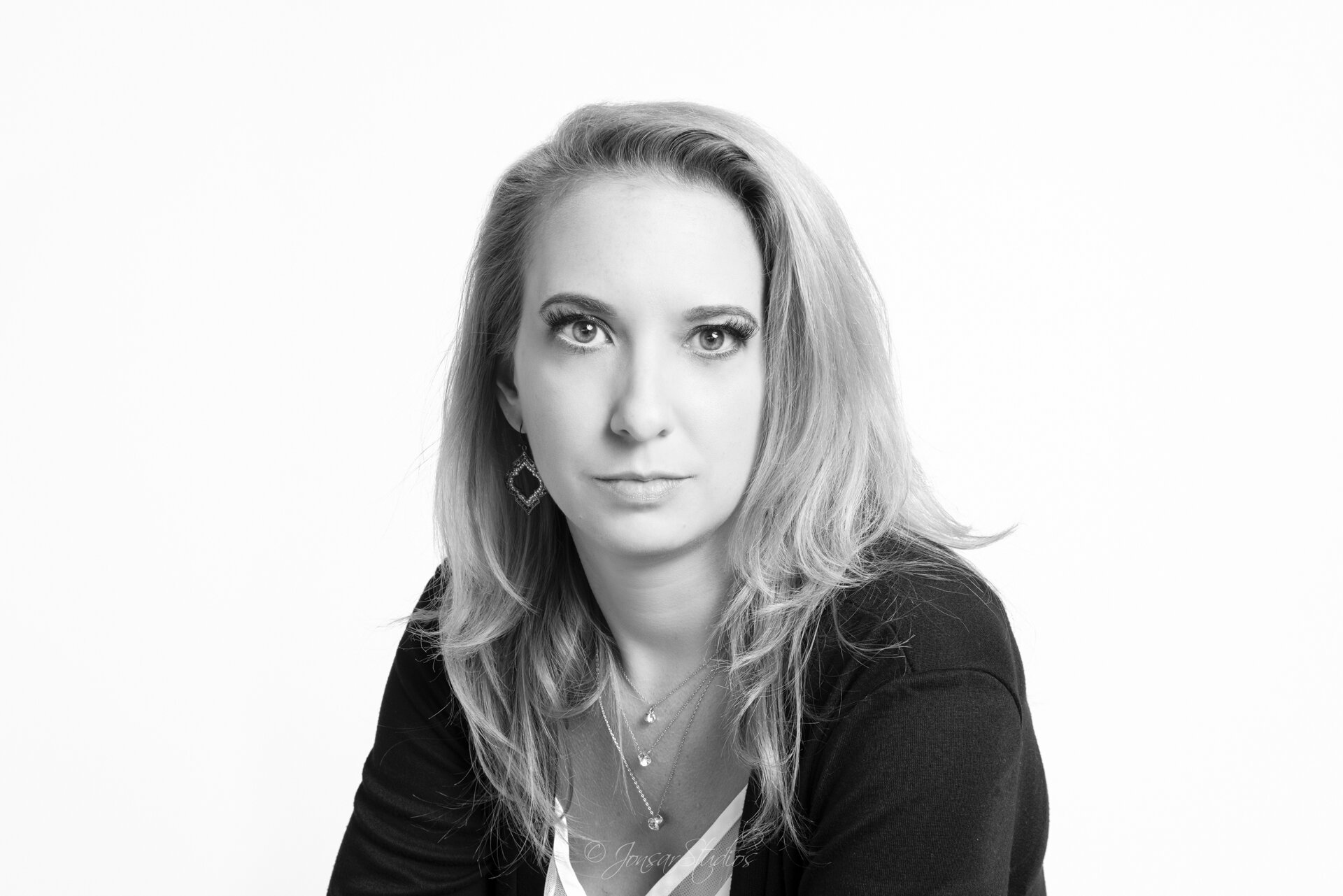Jaclyn Zendrian - Conversations with Artists -
What is the art of what you do?
I think of what I do as if I’m building things — crafting something from nothing. It starts as just an idea, maybe a few sentences in an email — a rough concept. Then I start having conversations and start writing things down and piecing things together. It becomes a puzzle, and I need to figure out how the pieces fit. I do some research and start signing contracts. I feel fabrics, taste food, and as I go along I’m building things and they become more and more tangible. Finally, I’m on-site and all that work and those visuals and words are built into this one concept that's taken months. It's finally in front of me and it's great. Then after all that time and effort it took to make it happen it’s over and dismantled and I’m onto the next thing. It’s making nothing into something, and as a result, people enjoy themselves — and I’ve done some good in the world.
What is the the net effect of all that energy?
I work in the non-profit space, and I've always worked in medical fields. Although I can't cure brain disease and I've never been a good student in the world of sciences and math, I can help people by bringing resources to them. I can help educate them. I can't talk about things in a scientific way, but I can bring the right people in to talk to the people that need the information. I can raise the money to bring in the researchers to help people — and maybe one day they’ll find a cure.
How do you make all that happen?
People tell me I'm very organized, but I don't necessarily know that I am. It does take an ability to categorize and to strategize and be able to see pitfalls that may trip you up - not just in the next step, but five steps in front of that. You have to be able to figure out what things are going to go wrong and how you can fix them before they do. There are different types of planners; there are very creative planners and then there are more business type of planners. I consider myself a business type planner. I don't think too much about color and lights. My mind goes towards finding information - I want the best speakers, I want people to be able to understand the information. I'm not worried about whether there are sparklers and noise and lights and flying drones. People need information first. They don't need the drones.
When you stand back and look at the puzzle having come together do you feel a sense of joy?
When it's done I feel good; everybody's happy - they got what they got the information they needed, they connected with other people that are going through the same things that they're going through. They leave with more resources than they had before. It makes me feel so good to know that they're better off as a result of our efforts than when they started.
What’s your role while the event is happening?
There are normally 100 things going on at once and I don't really sleep a lot the night before. I have to make sure that the right people are in the room where they need to be and the speakers have what they need. Once the session has started, everything's great -- but during the breaks and during the transition periods it's always a little bit of chaos. I’ve got to make sure nobody has fallen over… because we've had that happen. I’ve also got to make sure that nobody's wandered off because we've had that happen too — always men -- they wander off.
Worrying about people falling over isn’t the usual concern for an event planner.
It's not something your average planner has to deal with. Maybe at a wedding somebody's uncle might get into the Budweiser a little too much, and usually the family takes care of it. Our situation is a bit more sensitive. We’ve got to make sure things are taped down better, things are smoother, there are not too many tables or chairs in the way. You've also got to make sure the event space or hotel understands the demographic. I try to make sure that anybody who is working with me is very sensitive to the population. The last thing I want to do is make anyone feel uncomfortable — they already have lost so much in their lives.
Talk about the population you serve.
The PSP patient is generally 55 years old or over. We call PSP a ‘prime of life disease' because people are generally ready to think about retiring and they're in their prime of life. They're thinking about getting a boat, a vacation home, spending more time with the grandkids. Then little things start to go wrong and then bigger things start to go wrong and then they eventually get referred to a neurologist. They may or may not get a proper diagnosis — usually they get a misdiagnosis of Parkinson's Disease, but if they do get a diagnosis of PSP they find out they only have about roughly 5-7 years left to live. If they have a good neurologist, they’ll learn about management techniques. The patient is going to have to learn how to walk again and how to swallow again. They're going to need a good physical therapist, an occupational therapist, and speech pathologist all who will teach them to do these things. None of us ever had to learn how to swallow. We just inherently knew how to do it. Now that they have this disease they have to learn how to do all the things we just naturally do.
Did you set out to be an event planner when you started your career?
I didn’t know what I wanted to be until I was 27. I had a Masters degree in management and my Bachelor’s degree was in business. My thought was, well - I can manage stuff — it’s good to know how to manage people . But really, I had no idea what I wanted to do. I was floating along figuring things out for a long time.
You’ve described the art of what you do —what exactly is it that you do?
I am the Vice President of events for CurePSP. I handle all the fundraising events, the education events, research symposia, round table events. My work really falls into three structures; patient healthcare-oriented education events, fundraising events and research events. I also coach volunteers to put on events of their own.
How does being in this field affect your life?
It makes me think about what I’d want to do if I were to be diagnosed with PSP in the future. I respect other people's choices - if they would like to be with their family til the very end … ok. Personally, I would probably make a different choice and book a one-way ticket either to Sweden or Washington State.
The other change in my life because of my interaction with PSP is that I definitely have my financial house in order. I've got a will, I've got advance directives. Not a whole lot of people in their 30's really think about that sort of thing unless they're in the legal field. They're kind of like, ‘I'm good - gotta go to the next birthday party.’ And I'm like, ‘Nope, I'm going to a lawyer - gotta sign off on these documents just in case something happens.’ It makes you plan a little bit better for the future.
What growth do you hope to see in this field?
What we're doing right now is very US based. I would like to see it go more global - Europe, South America, and expand to more languages. Currently, PSP is so little known and it’s hard to get the information to neurologists because they’re busy with so many different diseases.
Having a celebrity spokesperson would be key.
A relevant celebrity — one that's a big name. There have been celebrities in the past who have had PSP. Currently, Linda Rondstadt has PSP and Dudley Moore did have PSP. Unfortunately, nobody under the age of 35 knows who Dudley Moore is. It would be helpful if a well-known celebrity took interest in the disease itself because we certainly could use that type of awareness.
If you could go back to 11-year-old you and whisper some advice, what would you tell her?
Probably that the person I would be able to most rely on is myself. Secondarily would be my mom.
Did you learn self-sufficiency at an early age?
I had to. The teen years were difficult. I got a job just to be out of the house. I've been an adult since I was a child.
You have a lot to feel good about.
I do good in the world — and that's something. I bring people together and I make good connections for them.
Tell us about ILEA.
I'm the incoming president of the International Live Events Association New York Metro Chapter. It’s an association of all types of event professionals. We get together to educate one another on different topics. There's a lot of variety and it balances out what I do at CurePSP. ILEA is your new best friend and your crazy cousin and your fun aunt. And CurePSP is a serious brain disease.
Many people aren’t aware that events are actually an industry.
Whenever I tell people I'm an event planner they immediately think weddings, and birthdays and stuff. I'm like ‘nope — neuroscience.’ Who do you think puts on symposiums? Somebody's got to do it. The neuroscientist isn't going to.
Putting together an event takes a certain a skill set.
When an event goes well it’s like a duck on water. The top of the duck is just hanging out looking relaxed. Underneath it's paddling like crazy, the feet are going like mad. As the event planner, everybody's going to look to you because you’re the point person. If they see you panicking then they're going to panic. The whole room will feel it. You can be intense, you can say what you mean to say, but don't be flailing.
That’s an art unto itself - the art of not panicking.
It’s an element of staying in control — staying 5 steps ahead to fix things before anyone realizes something’s broken. Often people don’t notice when things break. But I always notice. I’m like that duck — relaxed on top but going a million miles an hour under the surface.
Jaclyn Zendrian is the CurePSP Vice-President of Events. Most of her career has revolved around medical organizations, including The Johns Hopkins University Neurology Development Office. It was during this time that she discovered an affinity and ability for event planning. Jaclyn was drawn to the new position of Vice-President of Events at CurePSP because of her familiarity with nonprofits and neurology specifically. Plus, she is able to travel across the country, connecting with patients and families affected by neurodegenerative diseases. At CurePSP, Jaclyn manages the educational programs and events and oversees special events with volunteers handling everything from concepts to venue and speaker selection, as well as the special events encouraging people to support CurePSP in their own way.
Jaclyn is also President-Elect, International Live Events Association (ILEA), New York Metro Chapter. Board Member, and is a member of the Council of Protocol Executives (COPE). She is an event professional with a background in medical education events and fundraising events. Find out more about CUREPSP and ILEA.








